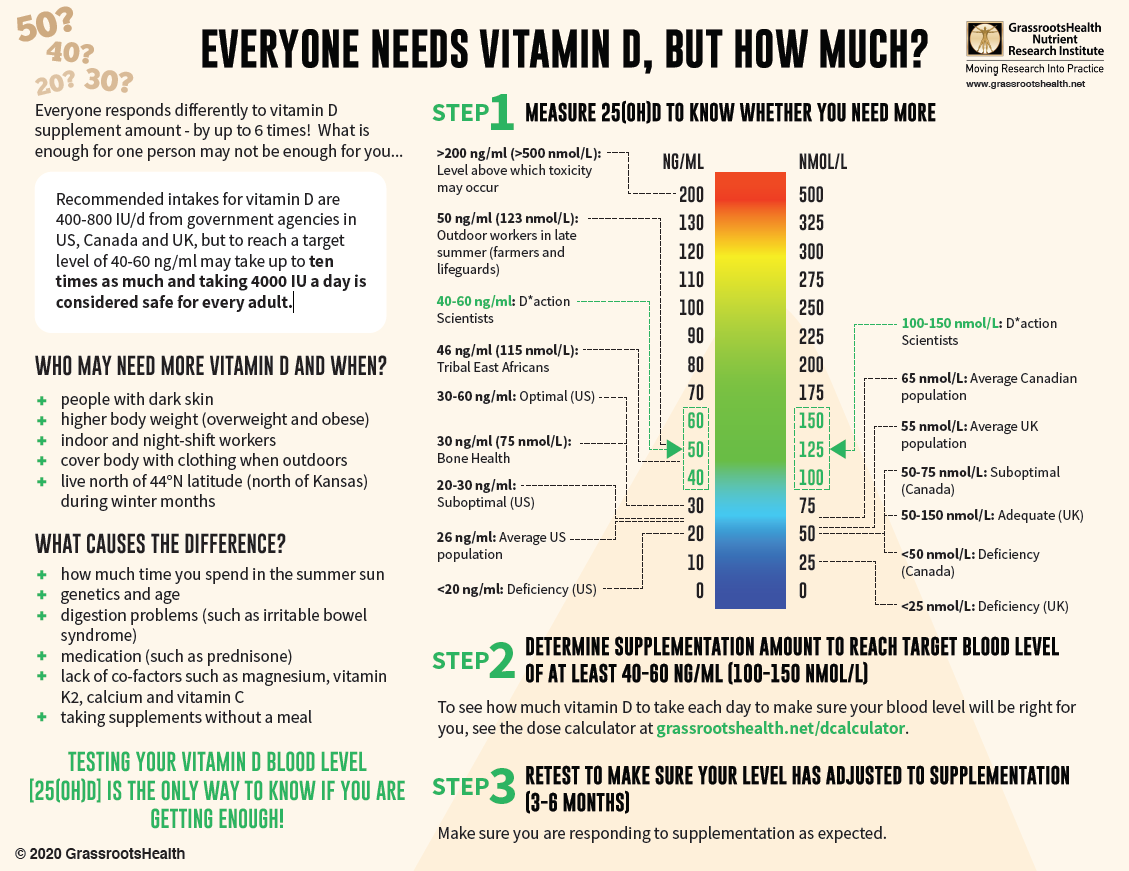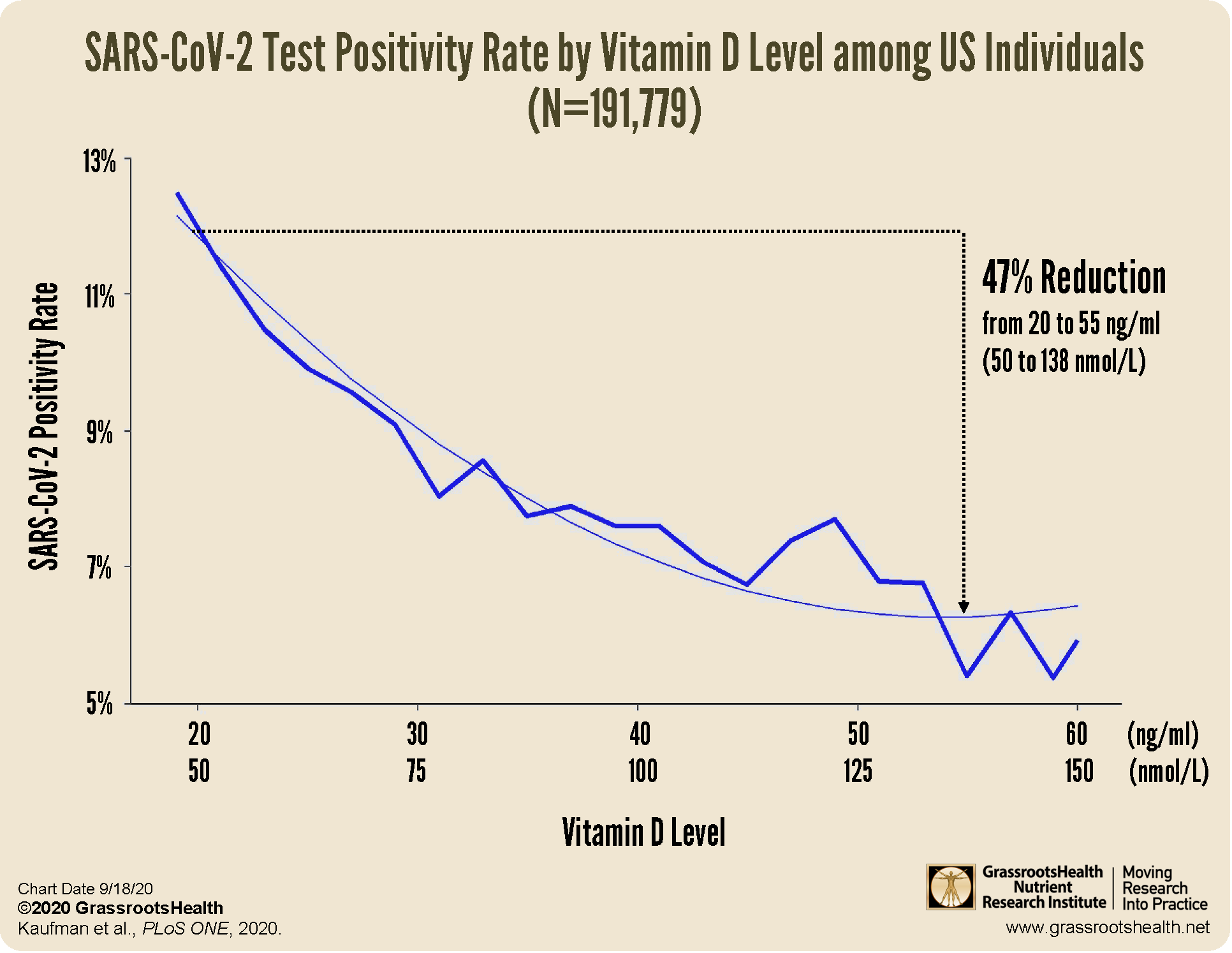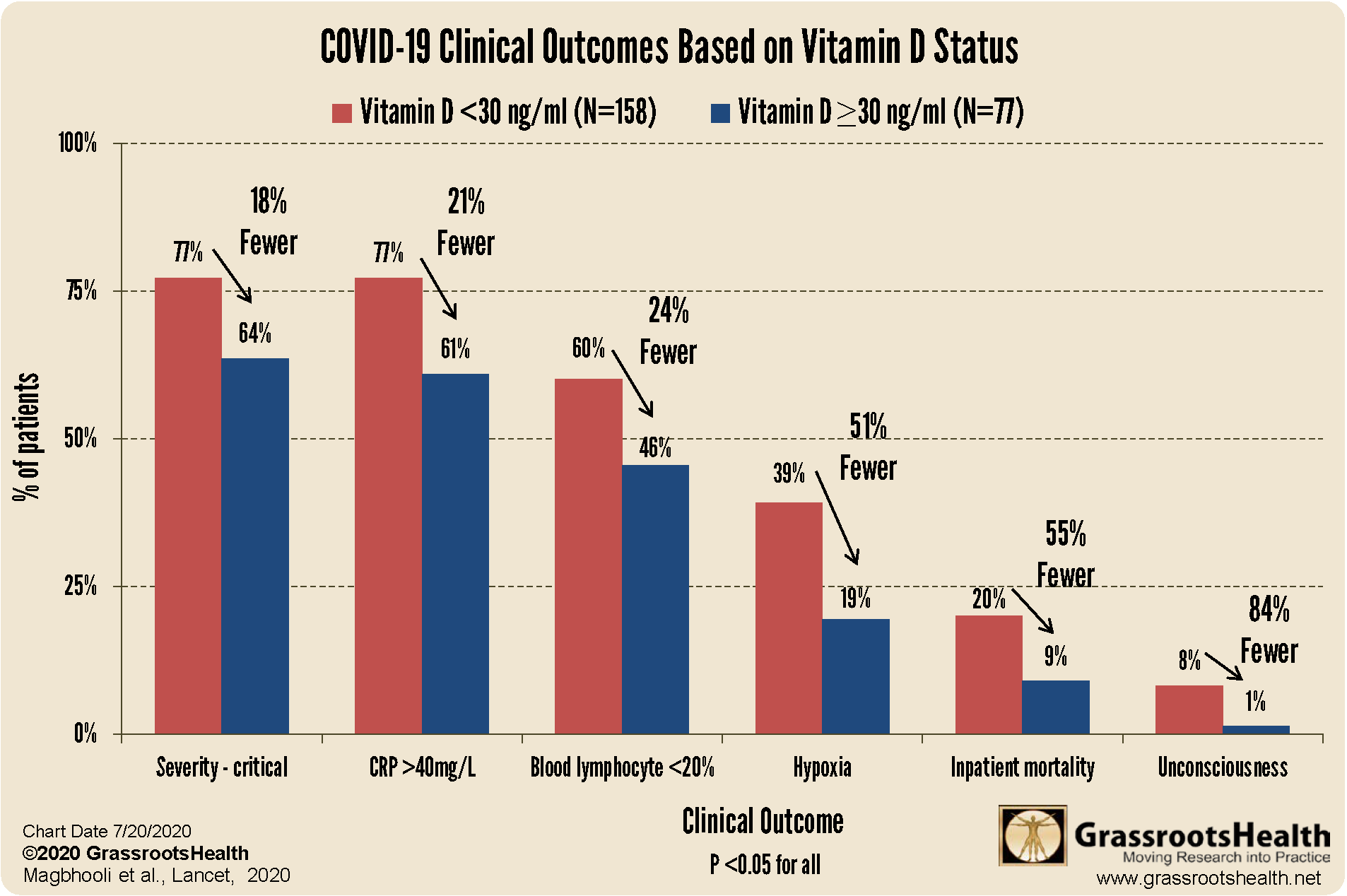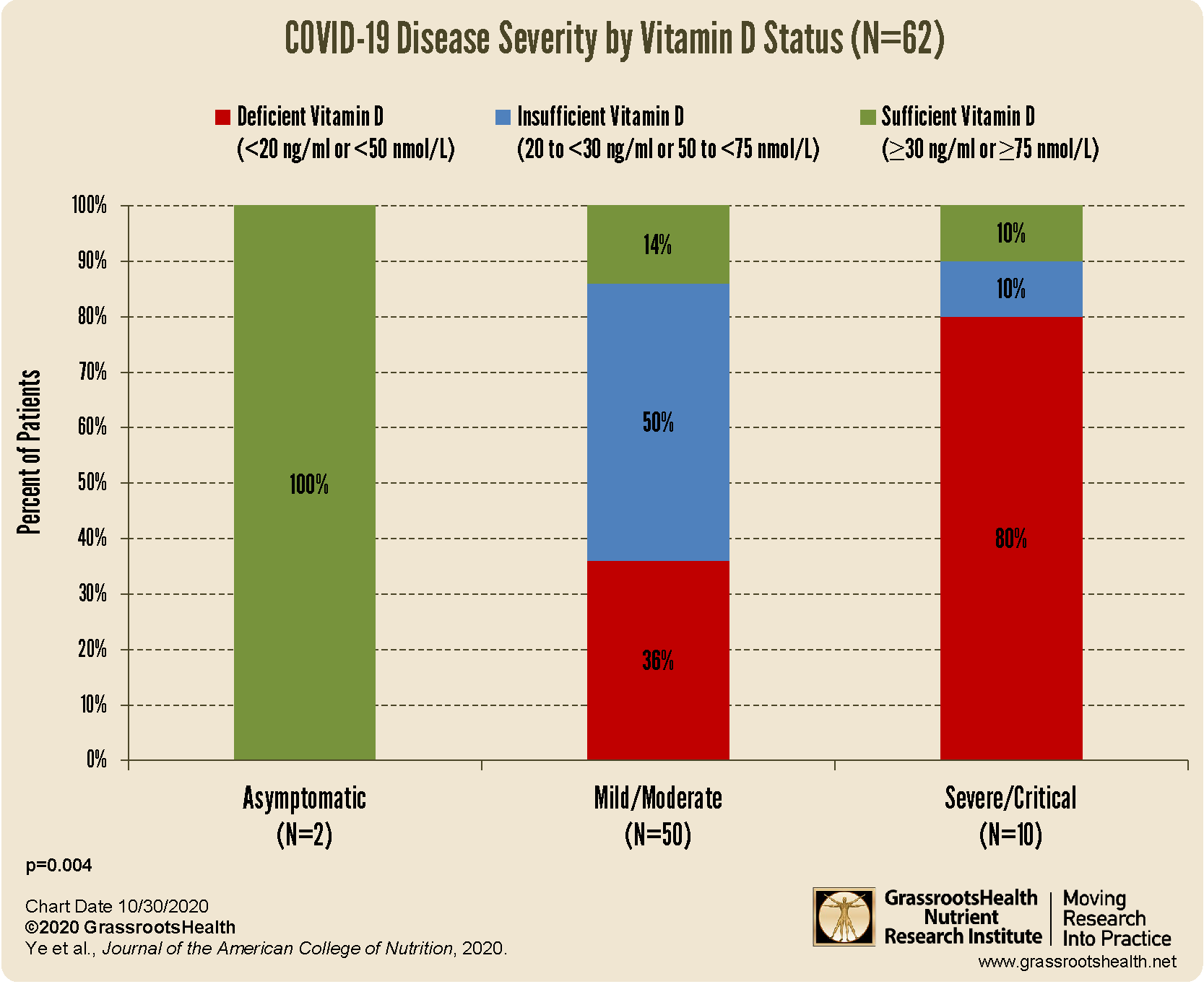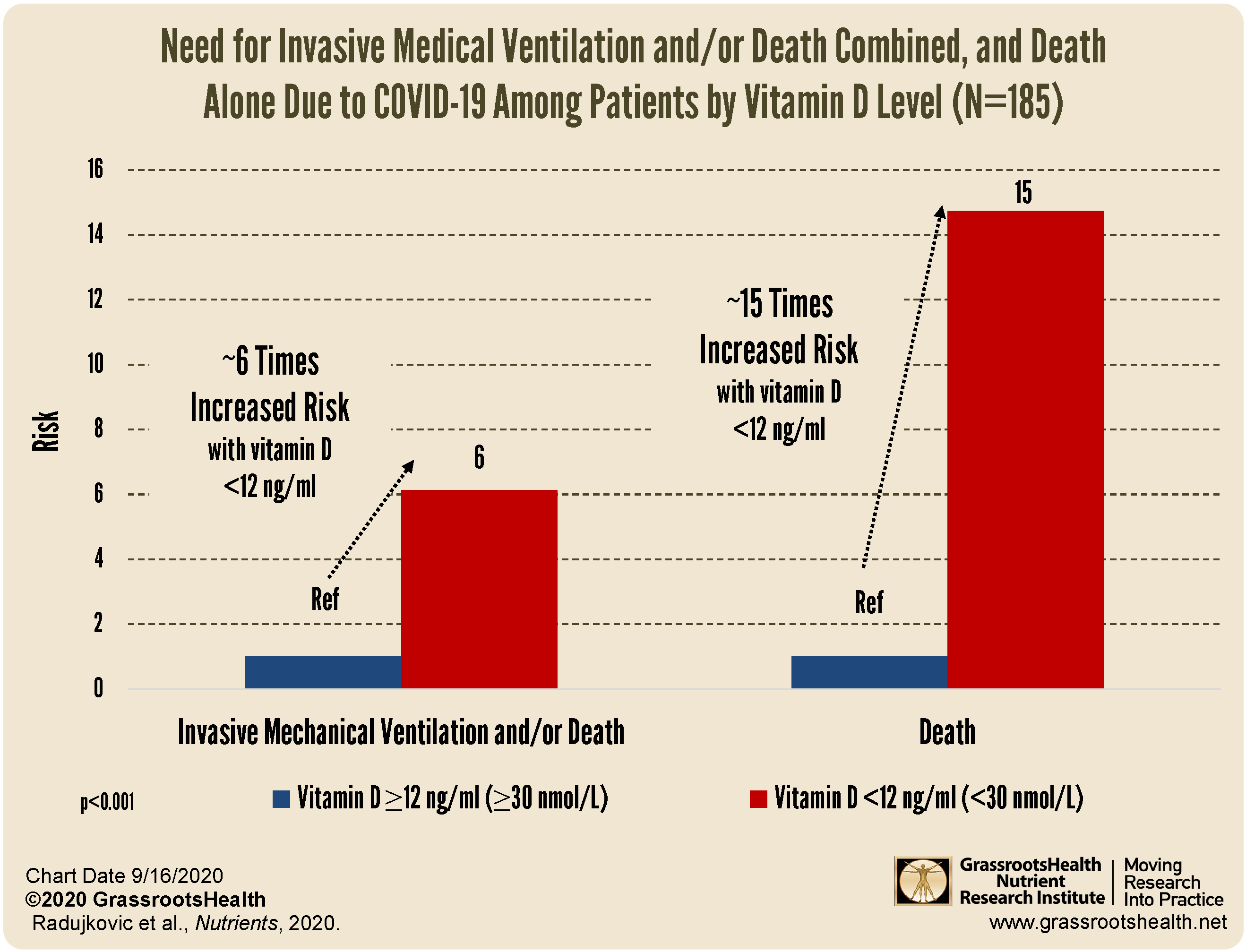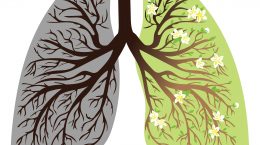Published on March 18, 2021
Video Friday: Mechanisms of Vitamin D Immune Regulation & Overview of Vitamin D and Respiratory Viruses (ex. SARS-CoV-2)
It’s Video Friday! This video by JJ Medicine discusses and clearly illustrates roles of vitamin D in immune system regulation, specifically with regards to how vitamin D can help protect against respiratory tract infections like SARS-CoV-2 (COVID-19). Included is a brief introduction to vitamin D and SARS-CoV-2, how vitamin D deficiency has been shown to increase the risk of all types of infections, how vitamin D supplementation has been shown to specifically protect against acute respiratory tract infections, and the ways vitamin D helps regulate the immune response during such infections.
Please take a moment to watch and share the video along with our detailed information below.
Watch the Video
After watching the video, be sure to make note of our added details below.
Overview of Vitamin D, Respiratory Viruses (ex. SARS-CoV-2) and Immune Response
Here is a quick summary of what this video discusses, along with additional information and details about vitamin D:
- Vitamin D acts as both a nutrient and a hormone within the body, and has functions in all types of cells and tissues. There are several different forms of vitamin D, from the vitamin D3 we ingest or make in the skin to the “active” or hormonal form 1,25(OH)2D. Vitamin D as 25(OH)D is used by nearly every cell in the body as a signaling molecule, and is especially important for its regulatory effects on immune cells.
- Vitamin D may be most well-known for its role in bone health, however it also helps to enhance immune and inflammatory responses – there are many ways vitamin D is involved in the immune response, from increasing white blood cells to fighting infection, modulating the expression of immune regulating genes, and decreasing inflammation.
- Vitamin D has been known to help fight infections from other beta coronaviruses; SARS-CoV-2, which causes the COVID-19 disease, is from the beta coronavirus group of viruses.
- Vitamin D insufficiency has been associated with increased susceptibility to all types of infections, not limited to acute respiratory tract infections. Vitamin D levels and intake can affect disease risk, severity, and mortality. Such infections include tuberculosis, influenza, and bacterial vaginosis.
- A study by Martineau et al. showed a 70% lower incidence of viral respiratory tract infections among those who had been vitamin D deficient but were randomly assigned to take vitamin D, compared to those who did not receive vitamin D – some infections in this study were likely due to a coronavirus infection. A subgroup analysis found the strongest protective effect in groups with baseline deficiency and in those taking daily or weekly doses but NOT among those bolus doses.
- How does vitamin D protect against respiratory infections? It affects the action of many different types of immune cells, including B cells, T cells, macrophages, dendritic cells, and others. It increases the presence and actions of anti-microbial peptides cathelicidins and defensins which act to disrupt microbial membranes, reduce viral replication, and reduce the production of pro-inflammatory cytokines (therefore inhibiting the cytokine storm). This regulation of inflammation is especially important in COVID-19, as it is the effects of the cytokine storm that lead to increased severity and death.
- As summarized our paper Evidence that Vitamin D Supplementation Could Reduce Risk of Influenza and COVID-19 Infections and Deaths, the risk of diabetes, hypertension, heart failure, COPD, and other comorbidities of COVID-19 are inversely correlated with vitamin D deficiency (risk increases as vitamin D decreases) – similar to the risk and severity of COVID-19 disease itself.
- How much vitamin D do you need? The current RDA of 600-800 IU per day is way too low. 4,000 IU per day is considered safe, however, may not be enough for many to reach the scientists’ recommended 40-60 ng/ml (100-150 nmol/L) vitamin D level.
How Are Your Vitamin D Levels Responding to Your Supplementation and Lifestyle Routine?
With almost 90% of the general population having vitamin D levels below the recommended 40-60 ng/ml (100-150 nmol/L), it is obvious that most people need more vitamin D. While most of us cannot achieve a vitamin D level of 40-60 ng/ml from sun alone, either due to our lifestyle, where we live, or other circumstances, we can certainly reach those levels with the right amount of supplementation.
Below is a guide for how much you might need, and who may need more. Your levels can be tested safely at home – order your home test kit today.
By joining the GrassrootsHealth projects, you are not only contributing valuable information to our study, but you are also gaining knowledge about how you could improve your own health through measuring and tracking your nutrient status, and educating yourself on how to improve it. Do you know what your status of vitamin D, omega-3s, and other essential nutrients is? Could your levels be improved? Test now to find out!
 We now have a NEW GIFTING SERVICE that allows you to quickly send ‘Gift Cards’ to friends, family and coworkers who you consider might need immediate access to testing, and to Claim the Joy of Your Health TODAY. Give the gift today!
We now have a NEW GIFTING SERVICE that allows you to quickly send ‘Gift Cards’ to friends, family and coworkers who you consider might need immediate access to testing, and to Claim the Joy of Your Health TODAY. Give the gift today!
What does the Research Say about Vitamin D & COVID-19?
It’s TIME to start saving lives! If you can help PREVENT the majority of the death, it’s time! What’s it costing you/us not to take action NOW?
There is much published research that supports a clear link between vitamin D and COVID-19 showing that higher vitamin D levels are related to:
a decreased risk of testing positive for COVID-19
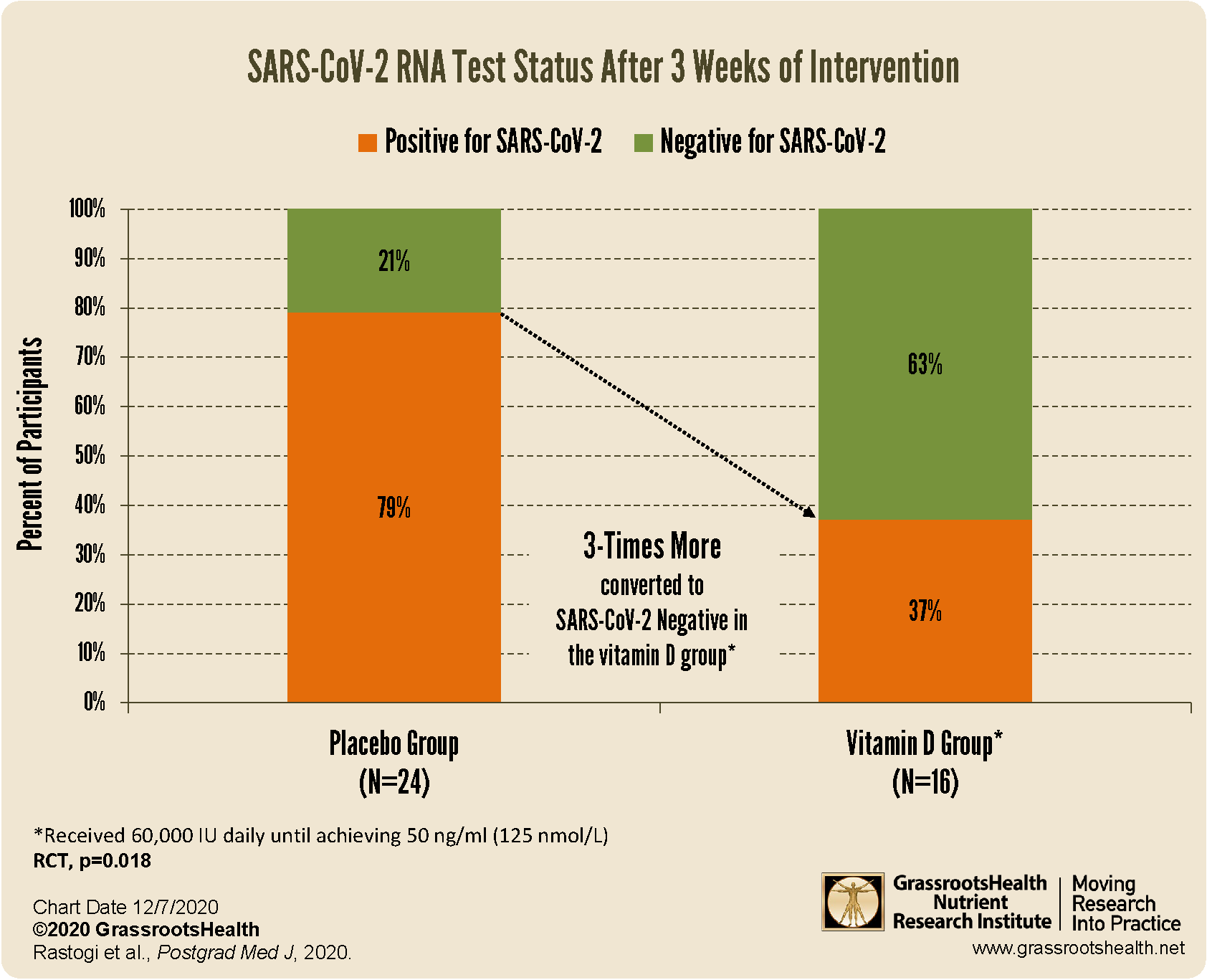 increased viral SARS-CoV-2 RNA clearance
increased viral SARS-CoV-2 RNA clearance
better clinical outcomes among patients with COVID-19
decreased risk of death due to COVID-19
Be sure to educate yourself on the benefits and importance of vitamin D for immune health, and take steps to ensure you and your loved ones are getting enough.
You can review all of the COVID-19 and immune health information we have shared on this page.



